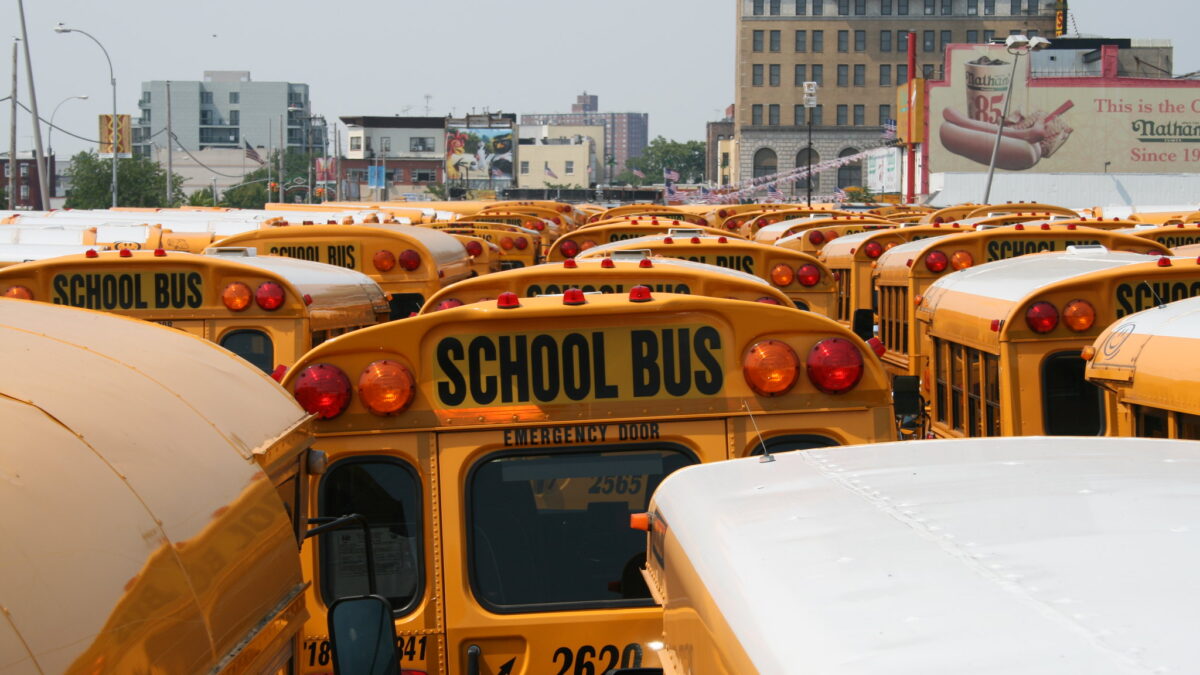The National Center for Educational Statistics just released its 2022 assessments of fourth and eighth graders, and the results are, at best, disturbing. According to the report, reading scores for these two grades have dropped 3 points since 2019, the most substantial loss since the 1980s. The math scores are even worse: 5 points for fourth graders and a whopping 8 points for eighth graders. These data are just the latest indicators of the catastrophic effects Covid lockdowns have had on the nation’s children.
While preparing CNN’s dwindling audience for this horror show, Jake Tapper found himself pondering why there’s been no “national conversation” about this topic:
I have to say that I’m surprised that there hasn’t been a national conversation about the damage done to kids because of these school closures. … We can’t just pretend that fifth graders, who are now seventh graders, that didn’t happen. … And not with a blame game; look, it happened, it was criticized. … But here we are. … There needs to be like a bipartisan movement, you know.
If Tapper took a moment to step outside his corporate media bubble, he might realize that this conversation has been going on for well over a year. He might even see that the educational establishment’s contributions to this conversation have been either to gaslight the public into compliance or to intimidate it into silence, usually with the blessing of its political and media allies on the left.
Despite the willful ignorance of Tapper and his ilk, the American public knows exactly who’s to blame for the appalling state of American education. Moreover, they expect the GOP to act decisively against the educrats if they take control of Congress in November.
A Blueprint for Success
Republicans need only look to last year’s gubernatorial election in Virginia for an idea of what voters want from them on this issue. During a debate between Republican candidate Glenn Youngkin and his Democratic counterpart Terry McAuliffe, McAuliffe made the critical error of saying the quiet part out loud about how his party really feels about parental involvement in education; he said, “I don’t think parents should be telling schools what they should teach.”
This admission came as conflicts between parents and school officials in deep blue Loudoun County were making national headlines. Yet when given a chance to walk back his statement, McAuliffe doubled down on it, calling opposition to critical race theory a “racist dog whistle.”
In the end, Youngkin’s efforts paid off as he beat McAuliffe by more than 63,000 votes. In the year since, he has enjoyed increasing support from Old Dominion voters, the latest polls placing him at 55 percent approval. Part of this success can be traced to his willingness to take on an intractable educational establishment on issues such as transgender policies and school choice.
The Winds Are Favorable
Issues like education that got Youngkin elected in Virginia remain prominent throughout the rest of the country. A record number of school board recall elections show how parents are more politically engaged in their children’s educations despite educrats branding such efforts as “extremist.”
Opinion polls also reveal that this issue is not going away. School choice, a mainstay of education reform, is finding more support than ever, with nearly three-fourths of Americans agreeing with such proposals. Parents are also voting with their feet; about 2 million children have been pulled out of the government school system in the last two years, many of them to be homeschooled.
Even registered Democrats are splitting from their party’s position on education. Although Florida’s Parental Rights in Education law was unjustly smeared by liberal elites and the corporate media, 55 percent of Democrats polled supported it once they knew what it actually said. School choice enjoys similar support: 70 percent of Democrats approve of such programs. These statistics were translated into action (or rather, lack of action) in Arizona, where despite a self-described “herculean effort,” Save Our Schools Arizona failed to get the requisite number of signatures to block the state’s expansion of its educational savings account program.
Perhaps the most damning evidence of this political shift comes from the educational establishment itself. In May, a poll of voters in five battleground states initiated by the American Federation of Teachers found that not only did a majority of people disagree with government-funded schools’ left-wing emphasis on race and sexuality, but also that the number of people who trusted Republicans more on education was equal to the number of those who trusted Democrats more. This is a shattering revelation, given the decades-long dominance that the left has enjoyed on the issue.
If a“red wave” does hit Congress in the coming days, concerns about public education will be one of the forces driving it.
A Plan of Action
Education is — and ought to remain — a predominantly local issue. However, should the GOP retake Congress, there are some things it can do to support efforts to combat the educational establishment at the state and local levels.
Congress can use its oversight power to hold school districts accountable for the nearly $200 billion given to them by the federal government since 2020. Although this money was “urgently needed” at the time to deal with pandemic-related problems, only 15 percent of it seems to have been spent so far. Republicans should demand strict accounting for these funds so that taxpayers know exactly how their money has been spent.
Speaking of accountability, Congress must also look into the circumstances surrounding the infamous letter sent by the National School Boards Association (NSBA) asking the Biden administration to treat parents who complain at school board meetings as “domestic terrorists.” Although the NSBA eventually disavowed the letter and fired the man they claim to be solely responsible for it, several questions still need to be answered. For instance, did anyone in the Biden administration encourage the NSBA to issue the letter as a FOIA document released in January indicates? And is the Department of Justice still following the directions of the memo issued in early October by Attorney General Merrick Garland detailing the federal law enforcement response to the NSBA’s request? Both the attorney general and Secretary of Education Miguel Cardona need to answer for this blatant effort to strip parents of their rights to speak and assemble freely.
Republicans must also play hardball with the White House over its election-year gimmick of forgiving student loans, a policy applauded by the National Education Association and the American Federation of Teachers. As various legal challenges to this unconstitutional program make their way through the courts, it’s clear that the entire scheme may have to pass through Congress anyway. If this ends up being the case, Republicans should demand reforms of the Department of Education’s policies, starting with its efforts to crush charter schools and withhold funds from schools that oppose the sexual indoctrination of children.
Jake Tapper and his peers in the corporate media might not want to play the “blame game” when it comes to the destruction wreaked by educrats, but voters are far less willing to forgive and forget. They want the educational establishment to pay for the havoc it unleashed upon America’s children. If the Republicans fare as well as expected on Election Day, they should remember their duty to provide that reckoning.









